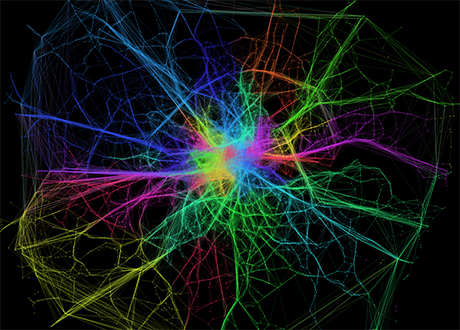Alan Turing Summit: Future Cities

How can data science address the challenges and opportunities that accelerated urbanisation pose for our cities and the people who live in them? The Future Cities event is coordinated by The Bartlett, UCL’s Faculty of the Built Environment in collaboration with the Alan Turing Institute, and provides a great opportunity to network and hear from experts in the field.
Please visit the Bartlett’s webpage for more information or click here to register on Eventbrite:
Speakers:
Professor Alan Penn, Dean of The Bartlett, Professor of Architectural and Urban Computing
Professor Laura Vaughan, Professor of Urban Form and Society; Director, Space Syntax Laboratory
Professor Sir Alan Wilson, Professor of Urban and Regional Systems, Centre for Advanced Spatial Analysis
Chris Murray, Director, Core Cities
Andrew Collinge, Assistant Director, Intelligence and Analysis, Greater London Authority
Indy Johar, Co-Founder Impact Hub; Senior Innovation Associate, Young Foundation
Catherine Mulligan, Head of Digital Strategy and Economics, Future Cities Catapult
Geoffrey Taylor, Academic Programme Manager, SAS
Scott Cain, Executive Director, Future Cities Catapult
Professor Michael Batty, Chair and Professor of Planning, Centre for Advanced Spatial Analysis
During this one-day event attendants will hear from key players in the built environment and data science field – outlining some of the core issues at different scales:
UK: cities and the devolution agenda
Global: urban resilience and risk
City: public services and city
Community: the role of community and neighbourhoods
Our experts will present on what data science can add to cities, from its benefits for local government and public services to a more citizen-driven approaches to data science.
The Bartlett hosts two major centres of data science and spatial analysis and design: Space Syntax Laboratory and the Centre for Advanced Spatial Analysis, seeking to explore the relationship between spatial design and the use of space, developing a science of cities, generating new knowledge and insights for use in city planning, policy and design and drawing on the latest geospatial methods and ideas in computer-based visualisation and modelling.
